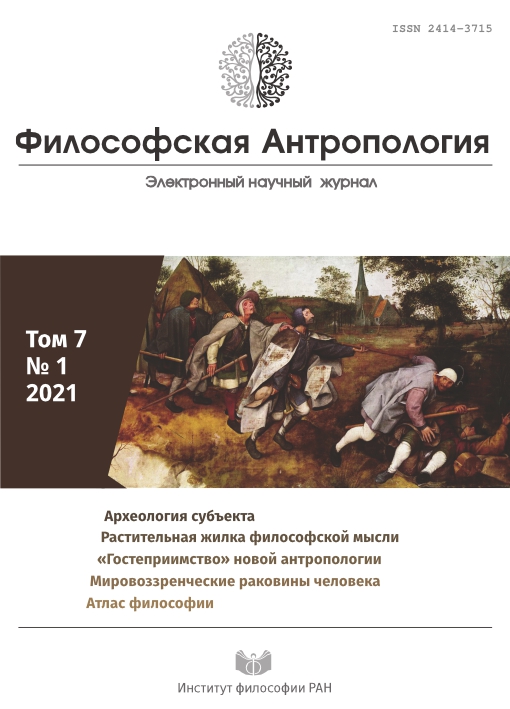Intercultural Philosophy
DOI:
https://doi.org/10.21146/2414-3715-2021-7-1-168-184Keywords:
intercultural philosophy, thought, culture, Eurocentrism, post-colonialism, tradition, universalism, tolerant pluralism, cognitive modesty, polylogueAbstract
Intercultural philosophy emerged in the 1980s and 1990s in Germany and Austria. It has become widespread throughout the world. Geopolitical changes, which defined the nature of modernity as an era of post-colonialism and globalization, played a decisive role in its emergence. The new philosophic trend has grown from a comparative philosophy that has gone through three stages of evolution: from proving the universal "truth" of Western philosophy, to attempts to create a "synthetic philosophy" and, finally, to the recognition of autonomy and significance of non-Western philosophies. Intercultural philosophy offers a new method of thinking, which involves the rejection of claims to the ultimate truth of the philosophical tradition of its own culture, respect for the heritage of other cultures, the deployment of large-scale discourse so that to find alternative approaches to solving both purely philosophical and global problems.

